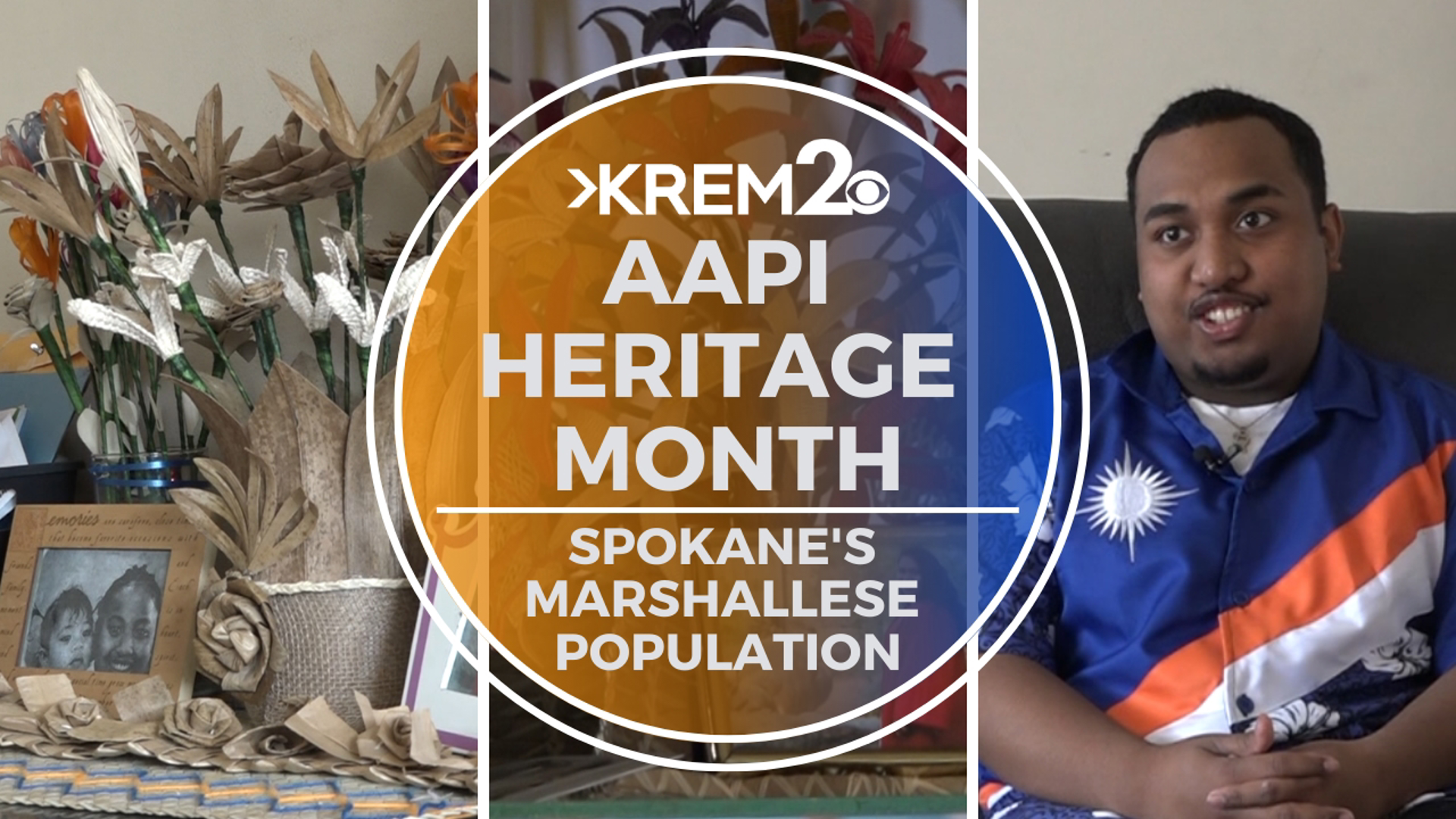SPOKANE, Wash. — Spokane is one of the three main areas in the United States with established Marshallese Communities. The others are in Arkansas and Michigan.
Marshallese families are now immersed in Spokane, but it hasn't always been easy for the Marshallese to feel at home.
"I feel like everyone in the Marshallese community should get the same benefits as everyone else here in America," Marshallese student Nathanael Hermios said.
Hermios considers himself lucky to be an American citizen, something his parents can't say for themselves.
"The whole family had to come move and then adjust to the environment," he said.
Nathanael's mother Merisa lived on the Marshall Islands for most of her life until she realized her plants began to wither.
"Turn to red and brown, it looks like they aren't healthy," she said.
She said that poison left over from nuclear testing during the Cold War caused the color change.
"They told us to move out from there," Merisa said.
Even though the testing was during the Cold War, poison remnants remained. Since 1986, Marshallese people were allowed to come to the U.S. as legal "non-immigrants."
Many fled to Spokane because there was already a strong community. Spokane now has more than 15 Marshallese churches.
"In the beginning in Spokane, there weren't that many Marshallese," Nathanael said. "But, as we grew up, we started noticing more and more Marshallese coming together."
Marshallese immigrants came to Spokane to give their children a better life. Aside from English, you might be surprised to learn what the second most spoken language is in the Spokane Public Schools.
Not Spanish, or Russian, but Marshallese.
"Most of our students are from the Marshall Islands, which is here in Micronesia," English Language Development teacher Cindy Hagan said.
Hagan teaches at Shaw Middle School. She also runs the Pacific Islander Club at the school.
"I wanted to give students that place to come together and have a sense of ownership in the school and a sense of belonging," Hagan said.
A sense of belonging that the organization Communities in Schools notices every day.
"I love their sense of community, like, they're very tied in with their own community," Communities in School Program Manager Alyssa Gonzalez said.
Communities in Schools is an organization that facilitates low-income programs throughout Spokane Public Schools. Their program manager says Marshallese students stick up for one another.
"I feel like they're very expressive and being able to show other people what their community is," Hagan said.
According to the U.S. Department of State, people from the Marshall Islands are not considered immigrants or refugees, nor are they considered U.S. citizens.
"I really need those things, but I have to stay away to take care of the family," Merisa said.
As for Nathanael, he hopes that his parents and many of his friends can get the rights they deserve.
"It feels like just being forced to give money," Nathanael said. "And that's how I see it as. I'm still growing as an adult. And I still see that is kind of unfair."
Nathanael has yet to even step foot on the Marshall Islands, but he continues to share his culture with the rest of Spokane.
DOWNLOAD THE KREM SMARTPHONE APP
DOWNLOAD FOR IPHONE HERE | DOWNLOAD FOR ANDROID HERE
HOW TO ADD THE KREM+ APP TO YOUR STREAMING DEVICE
ROKU: add the channel from the ROKU store or by searching for KREM in the Channel Store.
Fire TV: search for "KREM" to find the free app to add to your account. Another option for Fire TV is to have the app delivered directly to your Fire TV through Amazon.
To report a typo or grammatical error, please email webspokane@krem.com.

